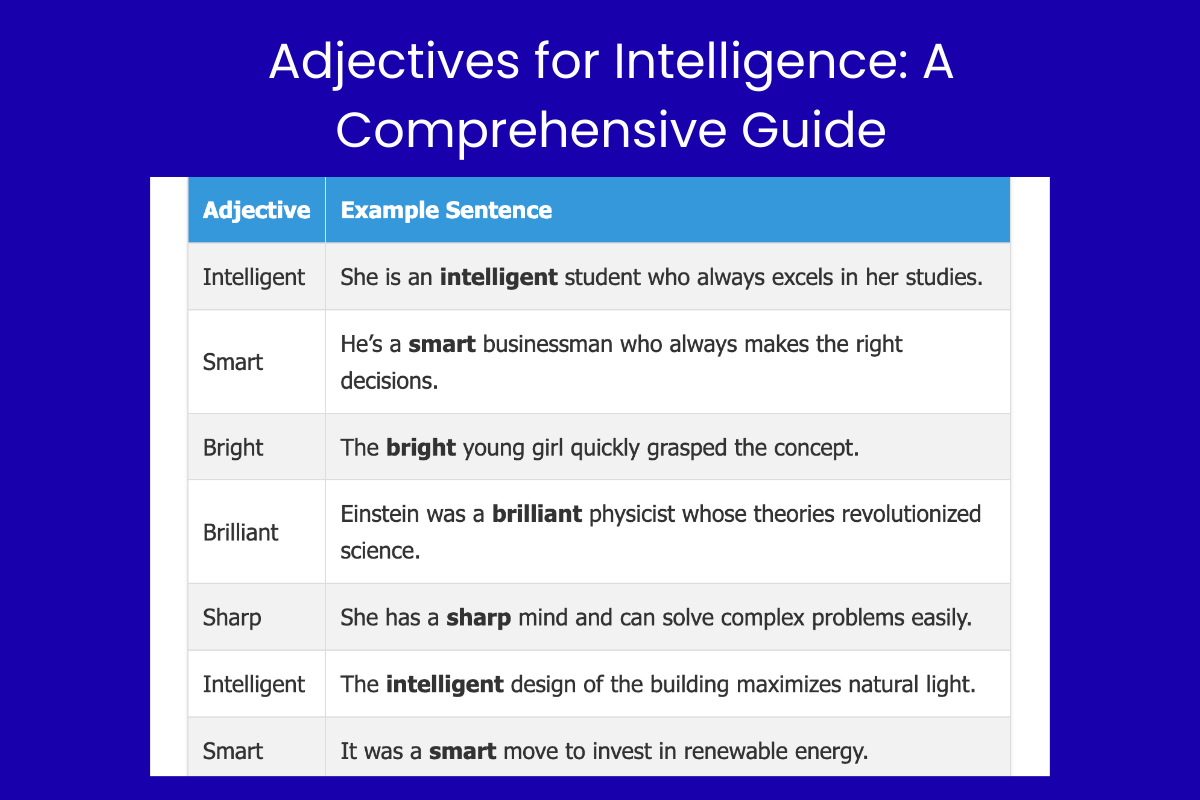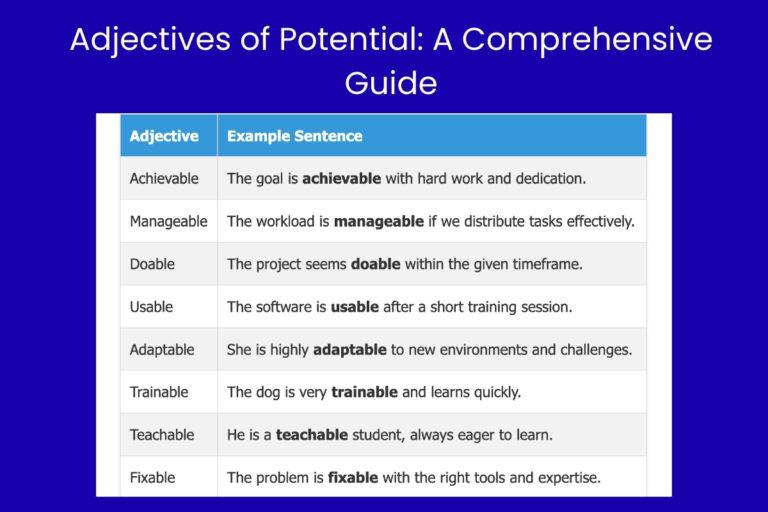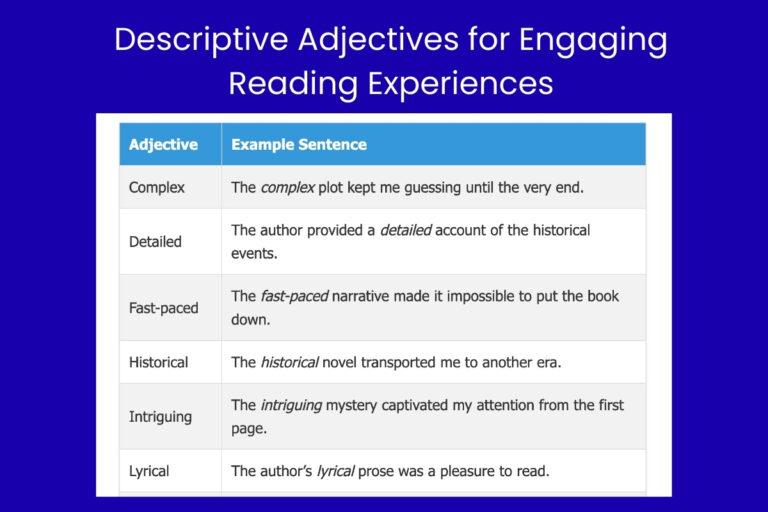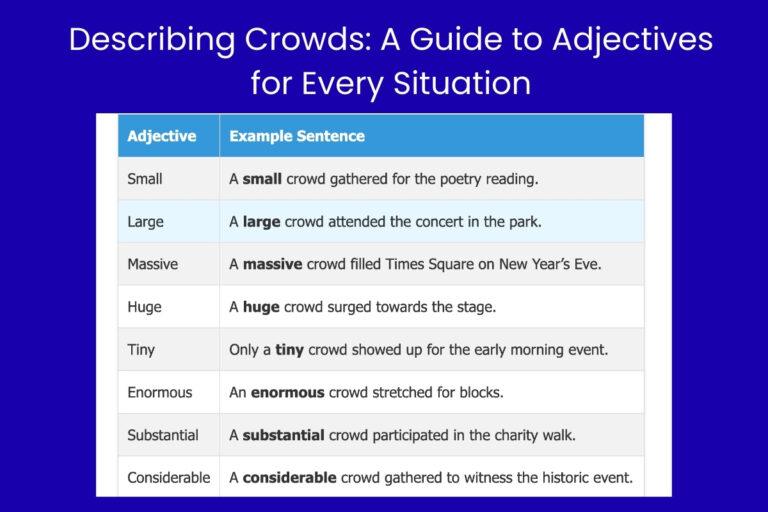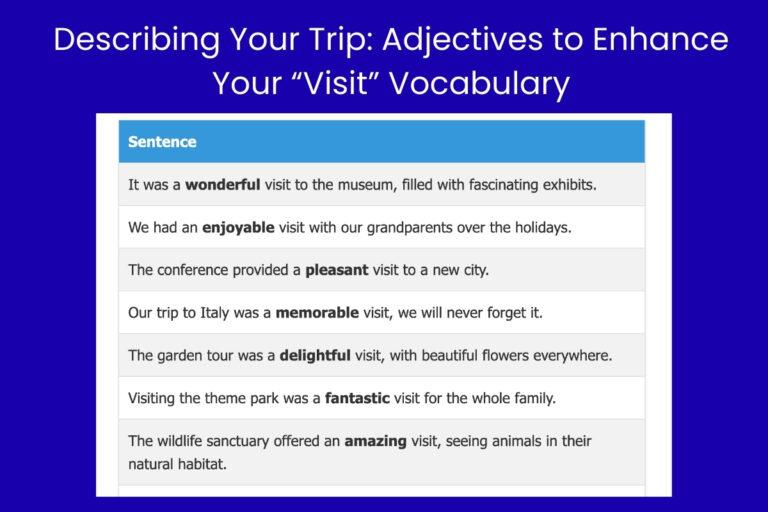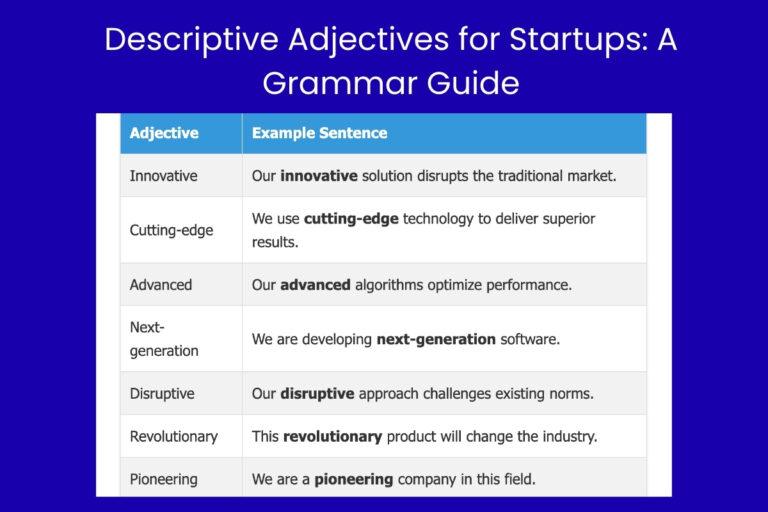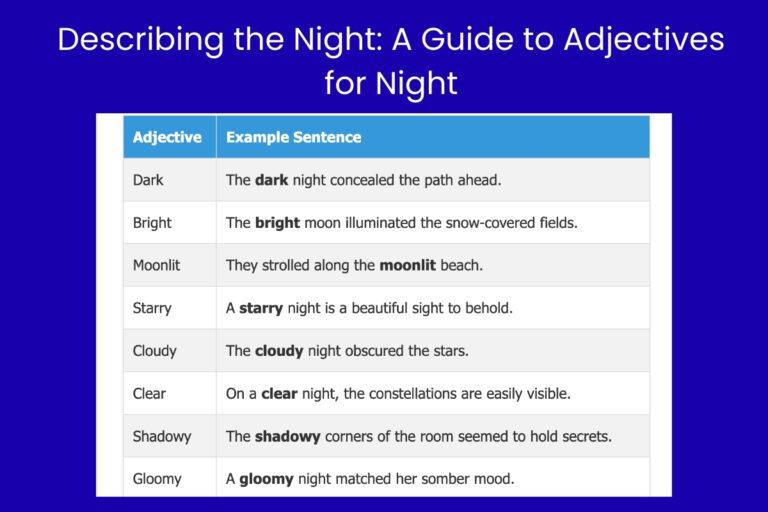Adjectives for Intelligence: A Comprehensive Guide
Understanding the nuances of language allows us to express ourselves with precision and clarity. When describing intelligence, a wide range of adjectives can be used, each carrying slightly different connotations. This article explores various adjectives that describe intelligence, delving into their meanings, usage, and the subtle differences between them. Whether you’re an English language learner or a seasoned writer, this guide will enhance your vocabulary and improve your ability to articulate the diverse facets of intelligence.
This article is designed to be a valuable resource for students, educators, writers, and anyone interested in expanding their understanding of English vocabulary. We will cover definitions, structural breakdowns, usage rules, common mistakes, and practice exercises to ensure a comprehensive learning experience. By the end of this guide, you’ll be well-equipped to use adjectives for intelligence with confidence and accuracy.
Table of Contents
- Introduction
- Definition of Intelligence and Adjectives
- Structural Breakdown of Adjectives
- Types of Adjectives for Intelligence
- Examples of Adjectives for Intelligence
- Usage Rules
- Common Mistakes
- Practice Exercises
- Advanced Topics
- FAQ
- Conclusion
Definition of Intelligence and Adjectives
Intelligence, in its broadest sense, refers to the capacity for logic, understanding, self-awareness, learning, emotional knowledge, reasoning, planning, creativity, critical thinking, and problem-solving. It is a multifaceted concept that encompasses a wide range of cognitive abilities. The term is often used to describe the ability to perceive or infer information, and to retain it as knowledge to be applied towards adaptive behaviors within an environment or context.
An adjective is a word that modifies a noun or pronoun, providing more information about it. Adjectives describe qualities, characteristics, or attributes of the noun they modify. When describing intelligence, adjectives help to specify the type, degree, or nature of the intelligence being referred to. For example, “intelligent” is a general adjective, while “brilliant” suggests a higher degree of intelligence, and “astute” emphasizes practical intelligence and shrewdness.
Structural Breakdown of Adjectives
Adjectives can be structurally simple, derived, or compound. Understanding these structures helps in recognizing and using adjectives effectively.
- Simple Adjectives: These are basic adjectives that consist of a single word, such as smart, wise, or clever.
- Derived Adjectives: These are formed by adding prefixes or suffixes to other words. For example, intelligent is derived from the noun intelligence, and knowledgeable is derived from the noun knowledge. Common suffixes include -able, -ful, -ive, -ent, and -ous.
- Compound Adjectives: These are formed by combining two or more words, often with a hyphen. Examples include quick-witted, well-read, and sharp-minded.
The position of adjectives in a sentence is also important. Adjectives usually come before the noun they modify (attributive position), but they can also follow a linking verb, such as is, are, was, or were (predicative position). For example:
- Attributive: “She is an intelligent student.”
- Predicative: “The student is intelligent.”
Types of Adjectives for Intelligence
There are various categories of adjectives used to describe intelligence, each highlighting different aspects of cognitive ability. Understanding these categories can help you choose the most appropriate adjective for a given context.
General Intelligence
These adjectives describe overall intelligence or cognitive ability without specifying particular skills. They are broad and widely applicable.
- Intelligent: Having or showing intelligence.
- Smart: Quick to understand, learn, and devise or apply ideas; intelligent.
- Bright: Intelligent and quick-witted.
- Brilliant: Exceptionally clever or talented.
- Sharp: Quick to understand things; intelligent.
Specific Skills and Abilities
These adjectives describe intelligence in relation to particular skills or areas of expertise.
- Knowledgeable: Having or showing knowledge, especially of a particular subject.
- Well-read: Having read widely and thoroughly.
- Learned: Having much knowledge acquired by study.
- Scholarly: Involving or relating to serious academic study.
- Erudite: Having or showing great knowledge or learning.
Wisdom and Insight
These adjectives emphasize the ability to apply knowledge and experience to make sound judgments and decisions.
- Wise: Having or showing experience, knowledge, and good judgment.
- Sagacious: Having or showing keen mental discernment and good judgment; wise.
- Insightful: Having or showing an accurate and deep understanding; perceptive.
- Perceptive: Having or showing sensitive insight.
- Astute: Having or showing an ability to accurately assess situations or people and turn this to one’s advantage.
Learning and Understanding
These adjectives relate to the ability to acquire and comprehend information.
- Studious: Spending a lot of time studying.
- Teachable: Able and willing to learn.
- Comprehending: Understanding.
- Discerning: Having or showing good judgment.
- Understanding: Having or showing compassion or willingness to allow indulgence in others.
Cleverness and Ingenuity
These adjectives highlight the ability to use intelligence in creative and resourceful ways.
- Clever: Quick to understand, learn, and devise or apply ideas; intelligent.
- Ingenious: Clever, original, and inventive.
- Resourceful: Able to deal skillfully and promptly with new situations, difficulties, etc.
- Quick-witted: Responding readily to questions or situations with clever or humorous replies.
- Inventive: Having or showing creativity or inventiveness.
Examples of Adjectives for Intelligence
The following tables provide examples of how these adjectives can be used in sentences, categorized by the type of intelligence they describe.
Table 1: General Intelligence
This table provides examples of adjectives that describe general intelligence and their use in sentences.
| Adjective | Example Sentence |
|---|---|
| Intelligent | She is an intelligent student who always excels in her studies. |
| Smart | He’s a smart businessman who always makes the right decisions. |
| Bright | The bright young girl quickly grasped the concept. |
| Brilliant | Einstein was a brilliant physicist whose theories revolutionized science. |
| Sharp | She has a sharp mind and can solve complex problems easily. |
| Intelligent | The intelligent design of the building maximizes natural light. |
| Smart | It was a smart move to invest in renewable energy. |
| Bright | He’s a bright spark in the research team. |
| Brilliant | Her brilliant performance earned her a standing ovation. |
| Sharp | You need a sharp eye to spot the differences. |
| Intelligent | An intelligent approach to the problem is needed. |
| Smart | Using a password manager is a smart way to protect your accounts. |
| Bright | She has a bright future ahead of her. |
| Brilliant | The artist’s brilliant use of color creates a stunning effect. |
| Sharp | He has a sharp sense of humor. |
| Intelligent | The AI system is highly intelligent and can learn from its mistakes. |
| Smart | It’s a smart strategy to diversify your investments. |
| Bright | The classroom was filled with bright and eager students. |
| Brilliant | The scientist had a brilliant idea that could solve the energy crisis. |
| Sharp | The detective had a sharp intuition that helped him solve the case. |
Table 2: Specific Skills and Abilities
This table provides examples of adjectives that describe specific skills and abilities and their use in sentences.
| Adjective | Example Sentence |
|---|---|
| Knowledgeable | He is a knowledgeable historian with a deep understanding of the past. |
| Well-read | She is well-read in classical literature and philosophy. |
| Learned | The learned professor shared his insights with the students. |
| Scholarly | His scholarly articles are widely respected in the academic community. |
| Erudite | The erudite speaker captivated the audience with his vast knowledge. |
| Knowledgeable | She’s very knowledgeable about wine. |
| Well-read | He’s a well-read individual who enjoys discussing literature. |
| Learned | The learned society promotes research and scholarship. |
| Scholarly | The scholarly journal publishes peer-reviewed articles. |
| Erudite | The erudite professor gave a fascinating lecture on ancient civilizations. |
| Knowledgeable | Our staff are knowledgeable and helpful. |
| Well-read | She is well-read and always has an interesting perspective. |
| Learned | The learned judge is known for his fair decisions. |
| Scholarly | The scholarly work provided new insights into the topic. |
| Erudite | The erudite scholar answered all questions with ease. |
| Knowledgeable | He is a knowledgeable guide who can answer all our questions about the local flora and fauna. |
| Well-read | She is a well-read critic who always has insightful commentary on the latest books. |
| Learned | The learned council made a wise decision that benefited the community. |
| Scholarly | The scholarly research provided a detailed analysis of the economic trends. |
| Erudite | The erudite professor’s lectures were always filled with fascinating historical details. |
Table 3: Wisdom and Insight
This table provides examples of adjectives that describe wisdom and insight and their use in sentences.
| Adjective | Example Sentence |
|---|---|
| Wise | She is a wise woman who always gives good advice. |
| Sagacious | The sagacious leader made a decision that benefited everyone. |
| Insightful | Her insightful comments provided a new perspective on the issue. |
| Perceptive | He is a perceptive observer of human behavior. |
| Astute | The astute businessman saw the opportunity and seized it. |
| Wise | It’s a wise decision to save for retirement. |
| Sagacious | The sagacious elder offered valuable guidance to the community. |
| Insightful | Her insightful analysis helped the team understand the problem. |
| Perceptive | He is a perceptive judge of character. |
| Astute | The astute politician navigated the complex situation with skill. |
| Wise | A wise investment can secure your financial future. |
| Sagacious | The sagacious king ruled with justice and compassion. |
| Insightful | Her insightful questions led to a deeper understanding of the topic. |
| Perceptive | A perceptive artist captures the essence of their subject. |
| Astute | The astute negotiator secured a favorable deal for the company. |
| Wise | It is wise to listen to the advice of experienced professionals. |
| Sagacious | The sagacious mentor guided the young entrepreneur towards success. |
| Insightful | Her insightful feedback helped improve the project. |
| Perceptive | He is a perceptive reader who can understand the underlying themes of a novel. |
| Astute | The astute investor predicted the market crash and made profitable moves. |
Table 4: Learning and Understanding
This table provides examples of adjectives that describe learning and understanding and their use in sentences.
| Adjective | Example Sentence |
|---|---|
| Studious | He is a studious student who spends hours in the library. |
| Teachable | She is teachable and always eager to learn new things. |
| Comprehending | The comprehending child quickly understood the instructions. |
| Discerning | He is a discerning critic with a keen eye for detail. |
| Understanding | She is an understanding teacher who is patient with her students. |
| Studious | She is a studious researcher who is dedicated to her work. |
| Teachable | The employee was teachable and quickly adapted to the new system. |
| Comprehending | The comprehending audience followed the complex argument with ease. |
| Discerning | The discerning shopper always looks for quality and value. |
| Understanding | He is an understanding friend who always listens without judgment. |
| Studious | The studious apprentice excelled in his training program. |
| Teachable | A teachable attitude is essential for continuous learning. |
| Comprehending | The comprehending software can analyze complex data sets. |
| Discerning | The discerning palate can distinguish subtle flavors. |
| Understanding | An understanding manager creates a supportive work environment. |
| Studious | The studious intern impressed the team with his dedication and hard work. |
| Teachable | The new recruit was teachable and quickly grasped the company’s procedures. |
| Comprehending | The comprehending tool helped the team analyze the survey results efficiently. |
| Discerning | The discerning art collector only acquires pieces of exceptional quality. |
| Understanding | An understanding family is crucial for emotional well-being. |
Table 5: Cleverness and Ingenuity
This table provides examples of adjectives that describe cleverness and ingenuity and their use in sentences.
| Adjective | Example Sentence |
|---|---|
| Clever | He is a clever inventor who comes up with innovative solutions. |
| Ingenious | Her ingenious design solved a long-standing problem. |
| Resourceful | She is resourceful and can find a way to overcome any obstacle. |
| Quick-witted | He is quick-witted and always has a witty remark ready. |
| Inventive | The inventive engineer created a groundbreaking technology. |
| Clever | It was a clever marketing campaign that went viral. |
| Ingenious | The ingenious mechanism allowed the machine to operate more efficiently. |
| Resourceful | The resourceful team found a way to complete the project on time and within budget. |
| Quick-witted | The quick-witted comedian had the audience in stitches. |
| Inventive | The inventive chef created a unique and delicious dish. |
| Clever | A clever disguise helped him evade detection. |
| Ingenious | The ingenious solution simplified the complex process. |
| Resourceful | A resourceful entrepreneur can identify and capitalize on opportunities. |
| Quick-witted | The quick-witted debater won the argument with ease. |
| Inventive | An inventive spirit is essential for innovation. |
| Clever | The clever strategy helped the company gain a competitive advantage. |
| Ingenious | The ingenious software streamlined the workflow. |
| Resourceful | The resourceful volunteer organized a successful fundraising event. |
| Quick-witted | The quick-witted negotiator resolved the conflict amicably. |
| Inventive | The inventive designer created a revolutionary product. |
Usage Rules
When using adjectives for intelligence, consider the following rules:
- Context: Choose an adjective that is appropriate for the specific context. For example, “erudite” is suitable for describing a scholar but not a child.
- Degree: Select an adjective that accurately reflects the degree of intelligence. “Smart” is less intense than “brilliant.”
- Connotation: Be aware of the connotations of different adjectives. “Astute” can imply shrewdness, while “wise” suggests good judgment.
- Placement: Place the adjective correctly in the sentence, either before the noun (attributive) or after a linking verb (predicative).
Examples of Correct and Incorrect Usage:
- Correct: “She is a brilliant scientist.” (Attributive)
- Correct: “The scientist is brilliant.” (Predicative)
- Incorrect: “She is a brilliantly scientist.” (Incorrect adverb usage)
Common Mistakes
Here are some common mistakes to avoid when using adjectives for intelligence:
- Using adverbs instead of adjectives: Incorrect: “He is brilliantly.” Correct: “He is brilliant.”
- Misunderstanding connotations: Using “astute” when “wise” is more appropriate, or vice versa.
- Incorrect placement: Placing the adjective in the wrong position in the sentence.
- Using overly formal adjectives in informal contexts: Using “erudite” in a casual conversation.
Table 6: Correct vs. Incorrect Examples
This table highlights common mistakes when using adjectives for intelligence and provides the correct alternatives.
| Incorrect | Correct | Explanation |
|---|---|---|
| He is brilliantly. | He is brilliant. | Use an adjective (brilliant) after a linking verb, not an adverb (brilliantly). |
| She is a wisely woman. | She is a wise woman. | Use an adjective (wise) to modify a noun (woman). |
| The student is smartness. | The student is smart. | Use an adjective (smart), not a noun (smartness) after a linking verb. |
| An astute decision wise. | A wise decision astute. | The order of words is incorrect. |
| He is knowledgeably. | He is knowledgeable. | Use an adjective (knowledgeable) after a linking verb, not an adverb (knowledgeably). |
| She is a well-readly person. | She is a well-read person. | The adjective is ‘well-read’, not ‘well-readly’. |
| The professor is eruditeness. | The professor is erudite. | Use an adjective (erudite), not a noun (eruditeness) after a linking verb. |
| The sagacious leader decision. | The sagacious leader’s decision. | Missing possessive form. |
| He is quick-wittedly. | He is quick-witted. | Use an adjective (quick-witted) after a linking verb, not an adverb (quick-wittedly). |
| She is a understandingly person. | She is an understanding person. | The adjective is ‘understanding’, not ‘understandingly’. |
Practice Exercises
Test your understanding with these practice exercises. Choose the most appropriate adjective from the list to complete each sentence.
Exercise 1: Choose the Correct Adjective
Choose the most appropriate adjective from the list to complete each sentence. Adjectives: intelligent, smart, bright, brilliant, sharp
| Question | Answer |
|---|---|
| 1. She is an __________ student who always gets top grades. | intelligent |
| 2. He made a __________ decision to invest in the company. | smart |
| 3. The __________ child quickly grasped the new concept. | bright |
| 4. Einstein was a __________ scientist. | brilliant |
| 5. She has a __________ mind and can solve complex problems easily. | sharp |
| 6. The __________ detective solved the case in record time. | sharp |
| 7. It was a __________ move to sell the stock before it crashed. | smart |
| 8. The __________ student excelled in all subjects. | bright |
| 9. Marie Curie was a __________ chemist. | brilliant |
| 10. He is an __________ negotiator who always gets the best deal. | intelligent |
Exercise 2: Fill in the Blanks
Fill in the blanks with the most appropriate adjective from the list provided. Adjectives: knowledgeable, well-read, learned, scholarly, erudite
| Question | Answer |
|---|---|
| 1. He is a __________ historian with a deep understanding of ancient civilizations. | knowledgeable |
| 2. She is __________ in classical literature and philosophy. | well-read |
| 3. The __________ professor shared his wisdom with the students. | learned |
| 4. His __________ articles are widely cited in academic research. | scholarly |
| 5. The __________ speaker captivated the audience with his vast knowledge. | erudite |
| 6. The museum curator is highly __________ about ancient artifacts. | knowledgeable |
| 7. She is __________ and enjoys discussing complex philosophical concepts. | well-read |
| 8. The __________ society promotes intellectual inquiry and debate. | learned |
| 9. The __________ journal publishes cutting-edge research. | scholarly |
| 10. The __________ guest impressed everyone with his profound insights. | erudite |
Exercise 3: Sentence Completion
Complete each sentence with the most appropriate adjective from the list. Adjectives: wise, sagacious, insightful, perceptive, astute
| Question | Answer |
|---|---|
| 1. She is a __________ counselor who always provides helpful guidance. | wise |
| 2. The __________ leader made a decision that benefited the entire community. | sagacious |
| 3. Her __________ comments offered a new perspective on the problem. | insightful |
| 4. He is a __________ observer of human nature. | perceptive |
| 5. The __________ investor saw the potential in the emerging market. | astute |
| 6. It is __________ to save for the future. | wise |
| 7. The __________ advisor gave valuable financial advice. | sagacious |
| 8. Her __________ analysis revealed the underlying causes of the conflict. | insightful |
| 9. He is a __________ judge of character. | perceptive |
| 10. The __________ negotiator secured a favorable agreement for all parties. | astute |
Advanced Topics
For advanced learners, exploring the nuances of these adjectives and their usage in complex sentence structures can further enhance their understanding. Consider the use of these adjectives in figurative language, such as metaphors and similes, or in formal academic writing where precision is crucial. Additionally, researching the etymology of these words can provide deeper insights into their meanings and historical usage.
Furthermore, explore the use of these adjectives in literature and poetry, analyzing how authors use them to create vivid and nuanced portrayals of characters and their intelligence. Pay attention to the subtle differences in meaning and connotation, and how these differences can impact the overall tone and message of the text.
FAQ
Q1: What is the difference between “intelligent” and “smart”?
A: While both words describe cognitive ability, “intelligent” is a more general term, while “smart” often implies quickness and practicality. Someone who is “intelligent” may have a broad understanding of various subjects, while someone who is “smart” is adept at solving problems and making quick decisions in everyday situations.
Q2: When should I use “erudite” instead of “knowledgeable”?
A: “Knowledgeable” implies having information or expertise in a particular area. “Erudite” suggests a more profound and extensive knowledge, often acquired through scholarly pursuits. Use “erudite” when describing someone with deep and comprehensive learning.
Q3: Is there a negative connotation to the word “astute”?
A: “Astute” can sometimes carry a slightly negative connotation, implying shrewdness or cunning. While it generally refers to someone who is quick to understand and take advantage of situations, it can also suggest a focus on personal gain rather than ethical considerations. Consider the context carefully when using this word.
Q4: Can “wise” be used to describe young people?
A: While “wise” is often associated with age and experience, it can be used to describe young people who exhibit exceptional judgment and understanding beyond their years. However, it’s more commonly used to describe older individuals who have accumulated knowledge and experience over time.
Q5: What is the difference between “insightful” and “perceptive”?
A: “Insightful” refers to having a deep understanding of a situation or problem, often leading to new perspectives or solutions. “Perceptive” describes the ability to notice and understand things that others might miss. “Insightful” implies a deeper level of understanding, while “perceptive” focuses on keen observation.
Q6: How do I avoid using adverbs instead of adjectives when describing intelligence?
A: Remember that adjectives modify nouns, while adverbs modify verbs, adjectives, or other adverbs. If you’re describing a person or thing, use an adjective. If you’re describing how an action is performed, use an adverb. For example, “He is intelligent” (adjective) vs. “He speaks intelligently” (adverb).
Q7: Can I use compound adjectives to describe intelligence?
A: Yes, compound adjectives like “quick-witted,” “well-read,” and “sharp-minded” can be effective in describing intelligence. These adjectives combine two or more words to create a more specific and nuanced description.
Q8: Is it appropriate to use adjectives for intelligence in formal writing?
A: Yes, adjectives for intelligence are appropriate in formal writing, but it’s important to choose the most precise and accurate word for the context. Avoid overly informal or colloquial adjectives, and be mindful of the connotations of each word.
Conclusion
Mastering the use of adjectives for intelligence enhances your ability to communicate effectively and precisely. By understanding the nuances of each adjective, you can accurately portray the different facets of cognitive ability, from general intelligence to specific skills and wisdom. This guide has provided a comprehensive overview of these adjectives, including their definitions, structural breakdowns, usage rules, common mistakes, and practice exercises.
Remember to consider the context, degree, and connotation of each adjective when choosing the most appropriate word. Practice using these adjectives in your writing and speech to solidify your understanding and improve your vocabulary. With continued effort, you’ll be able to articulate the diverse aspects of intelligence with
precision and clarity, enriching your communication and enhancing your understanding of the English language.
